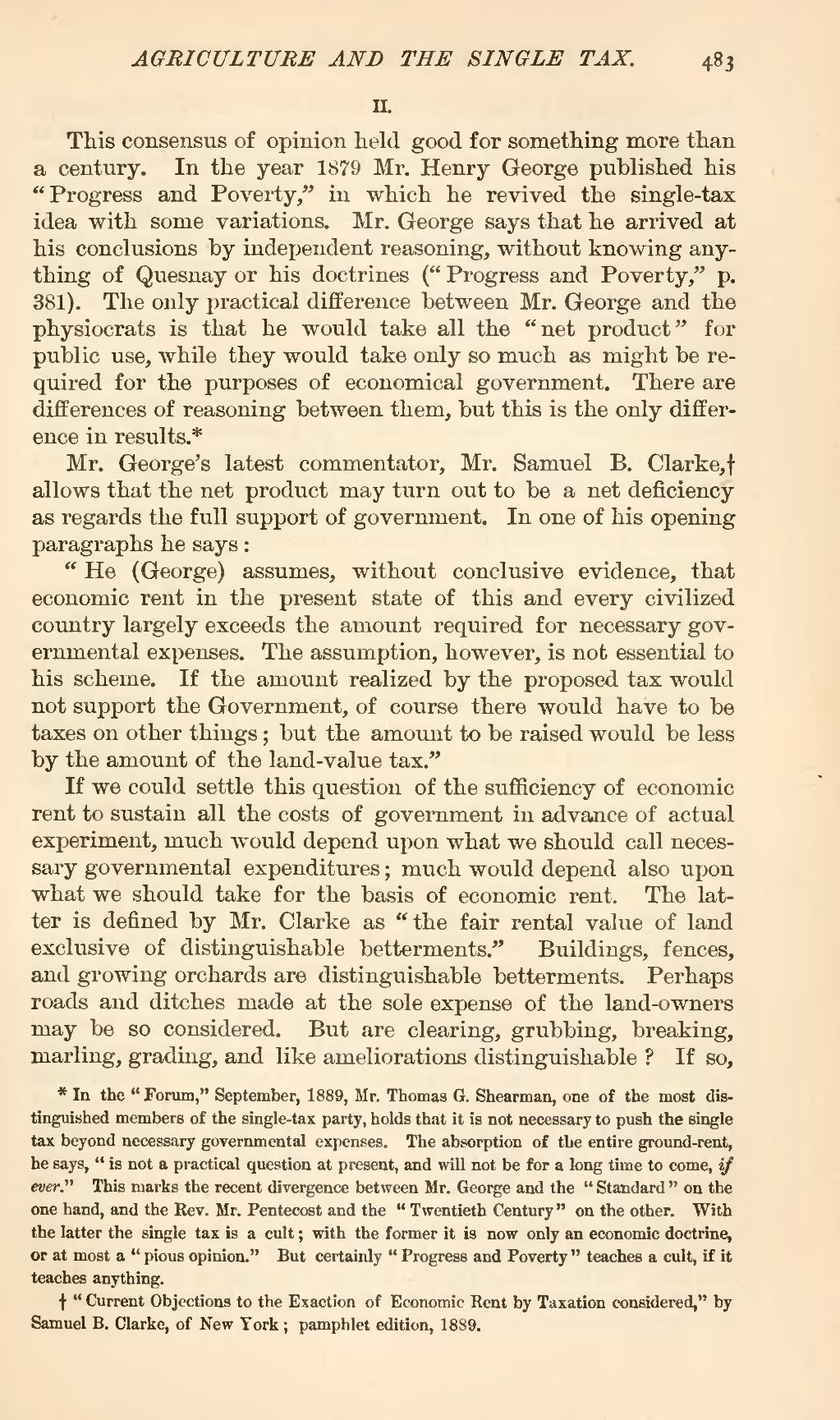II.
This consensus of opinion held good for something more than a century. In the year 1879 Mr. Henry George published his “Progress and Poverty,” in which he revived the single-tax idea with some variations. Mr. George says that he arrived at his conclusions by independent reasoning, without knowing anything of Quesnay or his doctrines (“Progress and Poverty,” p. 381). The only practical difference between Mr. George and the physiocrats is that he would take all the “net product” for public use, while they would take only so much as might be required for the purposes of economical government. There are differences of reasoning between them, but this is the only difference in results.[1]
Mr. George's latest commentator, Mr. Samuel B. Clarke,[2] allows that the net product may turn out to be a net deficiency as regards the full support of government. In one of his opening paragraphs he says:
“He (George) assumes, without conclusive evidence, that economic rent in the present state of this and every civilized country largely exceeds the amount required for necessary governmental expenses. The assumption, however, is not essential to his scheme. If the amount realized by the proposed tax would not support the Government, of course there would have to be taxes on other things; but the amount to be raised would be less by the amount of the land-value tax.”
If we could settle this question of the sufficiency of economic rent to sustain all the costs of government in advance of actual experiment, much would depend upon what we should call necessary governmental expenditures; much would depend also upon what we should take for the basis of economic rent. The latter is defined by Mr. Clarke as “the fair rental value of land exclusive of distinguishable betterments.” Buildings, fences, and growing orchards are distinguishable betterments. Perhaps roads and ditches made at the sole expense of the land-owners may be so considered. But are clearing, grubbing, breaking, marling, grading, and like ameliorations distinguishable? If so,
- ↑ In the “Forum,” September, 1889, Mr. Thomas G. Shearman, one of the most distinguished members of the single-tax party, holds that it is not necessary to push the single tax beyond necessary governmental expenses. The absorption of the entire ground-rent, he says, “is not a practical question at present, and will not be for a long time to come, if ever.” This marks the recent divergence between Mr. George and the “Standard” on the one hand, and the Rev. Mr. Pentecost and the “Twentieth Century” on the other. With the latter the single tax is a cult; with the former it is now only an economic doctrine, or at most a “pious opinion.” But certainly “Progress and Poverty” teaches a cult, if it teaches anything.
- ↑ “Current Objections to the Exaction of Economic Rent by Taxation considered,” by Samuel B. Clarke, of New York; pamphlet edition, 1889.

